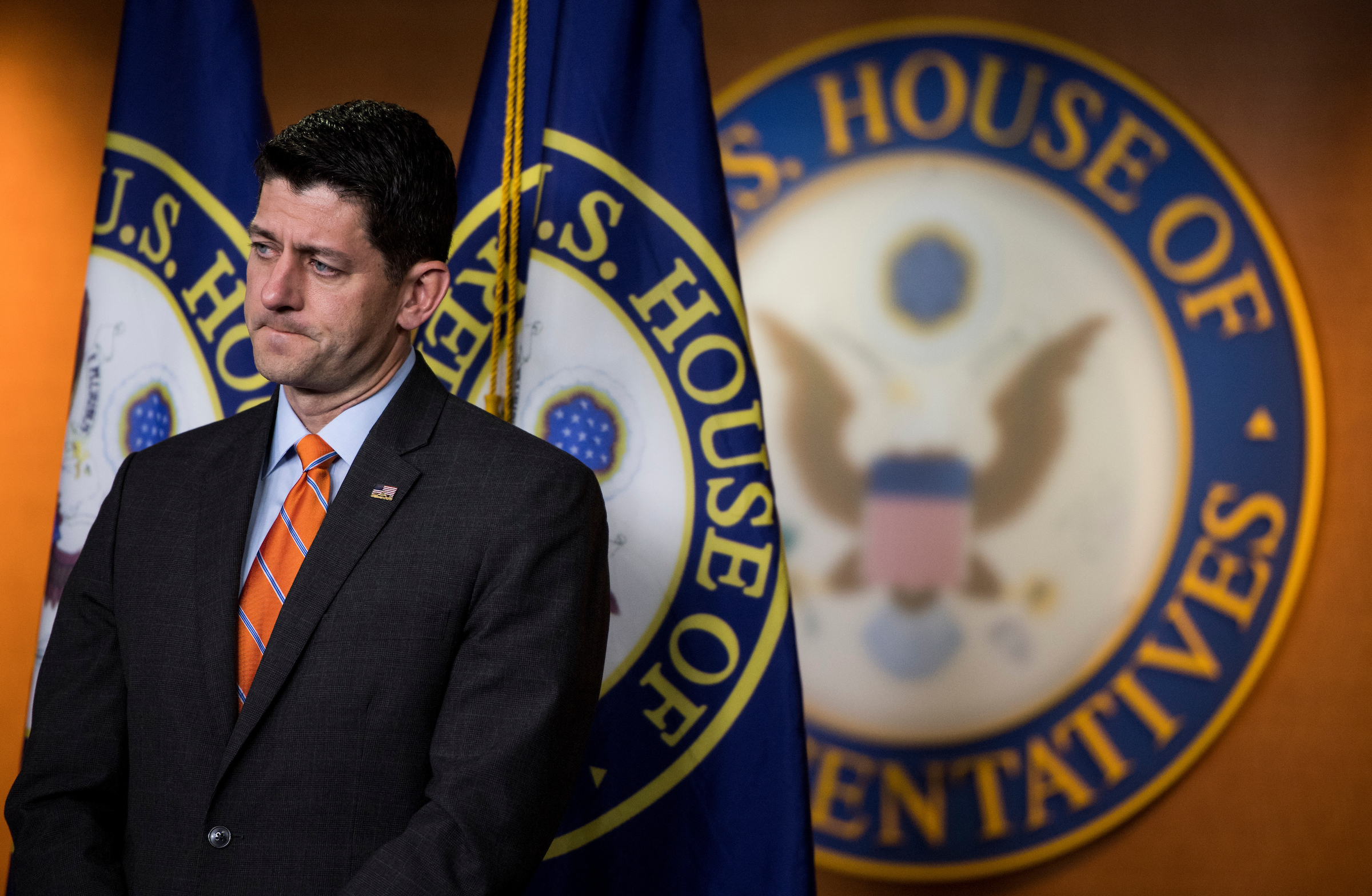House, Administration Settle Lawsuit Over Health Law Payments
Separate health law case upholds ability for attorneys general to intervene

The House of Representatives, the White House and several states on Wednesday settled a lawsuit over appropriations for the 2010 health law, resolving years of fighting over the balance of powers between the branches of government.
The U.S. Court of Appeals for the D.C. Circuit dismissed an appeal of an earlier ruling, which found that the Obama administration had been illegally spending money under the 2010 health care law without an appropriation from Congress. The settlement confirmed that ruling and left open the question of whether the House has standing to sue the executive branch.
The House had sued the Obama administration under then-Speaker John A. Boehner, saying it violated the Constitution by reimbursing insurers for the law’s cost-sharing reduction subsidies, which help lower-income enrollees afford certain out-of-pocket costs, without explicit direction from Congress. The Obama administration appealed Judge Rosemary M. Collyer’s ruling, but the case was put on hold when the Trump administration took office and congressional Republicans sought to dismantle the law.
The Trump administration cut off funding for the payments, known as CSRs, in October, a move which resulted in higher premiums for some plans sold on the federal and state marketplaces this year.
The House, administration and states had tentatively agreed to the concepts behind the settlement in December.
Current Speaker Paul D. Ryan said the settlement leaves the House stronger as an institution.
“When former Speaker John Boehner initiated this suit, it was to protect one of the House’s most primary authorities: the power to spend,” the Wisconsin Republican said in a statement. “Fighting for a successful conclusion has been an important priority for my speakership, and the result today preserves that only Congress, not the executive, can authorize spending.”
More than a dozen left-leaning states were granted the ability to defend the authority to make the payments without an appropriation, as the Obama administration had argued.
Another Case
Democratic attorneys general mimicked that move to intervene in another case when a group of Republican states filed a lawsuit seeking to invalidate the health law after Congress eliminated a penalty for not having insurance coverage as part of a tax overhaul. A federal judge on Wednesday granted them the authority to intervene in that case.
Led by Texas, 19 states argued that the 2010 law became unconstitutional after the mandate was effectively repealed, since a 2012 U.S. Supreme Court ruling upheld the constitutionality of the law because the penalty was considered a tax.
“The goal of Texas’ lawsuit is to leave Americans without health insurance, forcing them to choose between their health and other needs,” California Attorney General Xavier Becerra said in a statement. “Today’s ruling allows us to protect the health and well-being of these Americans by defending affordable access to healthcare.”





